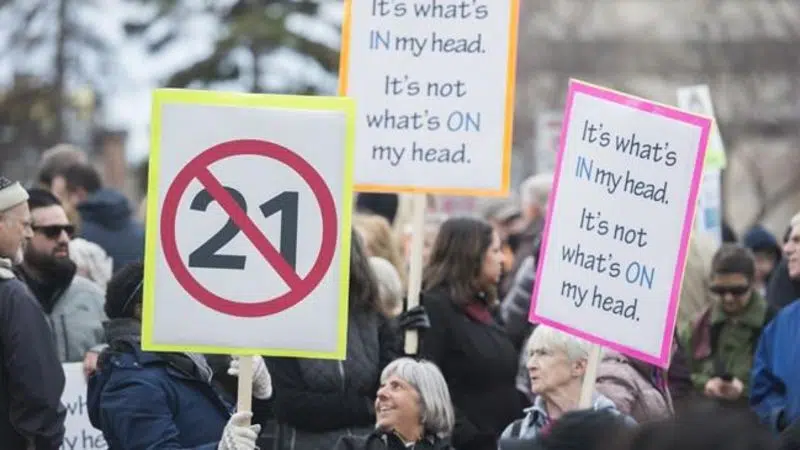
Liberal MPs join other elected officials to oppose Quebec’s secularism bill
MONTREAL — A coalition of federal, provincial and municipal politicians added their voices to those opposing Quebec’s proposed secularism bill on Sunday as they joined community leaders and citizens in denouncing the legislation as discriminatory and unconstitutional.
A few hundred people gathered in front of a community centre in the Montreal-area Cote-Saint-Luc suburb for a protest against Bill 21, which would prevent many state employees, including teachers and police officers, from wearing religious symbols on the job.
Anthony Housefather, who was one of five Liberal MPs to attend, said politicians have a responsibility to stand up against a bill that threatens fundamental rights and freedoms.
